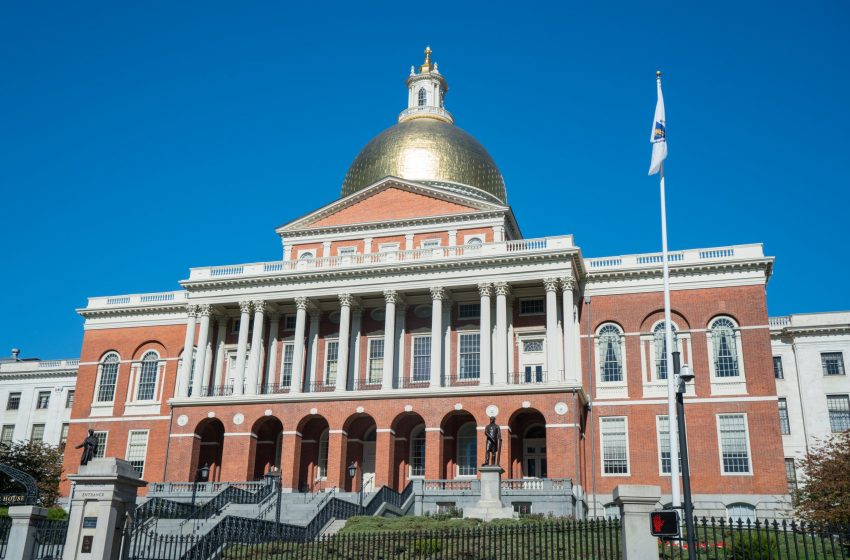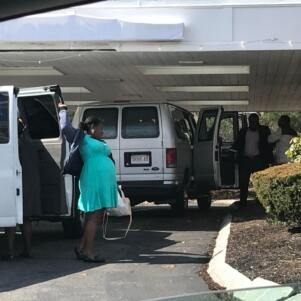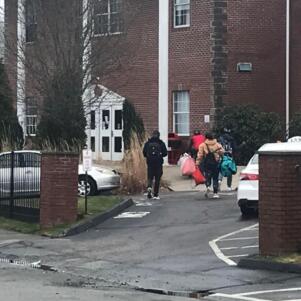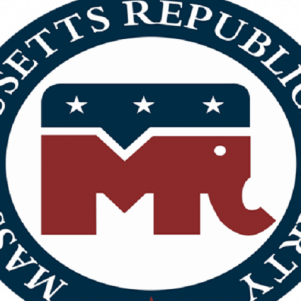Electoral college plan could entice candidates to visit Massachusetts
By State House News Service | December 12, 2016, 14:21 EST
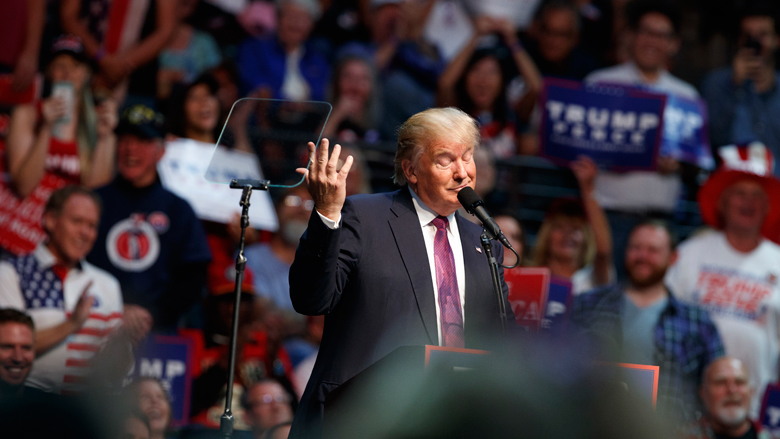 (AP Photo/Evan Vucci)
(AP Photo/Evan Vucci) STATE HOUSE – Rep. Shawn Dooley wants Massachusetts to play hard to get, at least when it comes to presidential politics.
The Norfolk Republican last week filed a bill to change the way the Bay State metes out its Electoral College votes for presidential candidates to allow the 11 votes be split by congressional district, similar to how Maine and Nebraska award their electoral votes.
Under his proposal ( HD 5192), one presidential elector would be chosen from each of the state’s nine congressional districts and two would be chosen as “at-large” electors. The at-large electors would be bound to cast ballots for the presidential candidate that wins the state popular vote, but the congressional electors would cast their ballots for whichever candidate won their district.
The switch would create swing counties, Dooley said, and would give candidates more of an incentive to campaign in Massachusetts and fight for the votes of residents outside the populous Greater Boston area, rather than focusing on the metropolitan areas to run up the popular vote count and take all 11 votes.
“I believe it will make Massachusetts more in play because instead of being a slam dunk for the Democrats, it allows for more of a possibility, especially in some of the western Mass. districts for other candidates to win,” Dooley, who served as Norfolk town clerk before being elected to the Legislature in 2014, said. “What it’ll do is help make sure that whichever presidential candidate is running will come out to different areas if there is a possibility they could win.”
Maine distributes its electoral votes in a similar fashion, and Dooley cited the attention President-elect Donald Trump paid that state during the campaign as a reason Massachusetts should consider the switch.
Thinking he would need to win one congressional district in Maine — and therefore one electoral vote — to reach the 270 electoral vote threshold, Trump spent significantly more time in Maine than other presidential candidates have in recent election cycles.
“I went to Maine four times. I went to Maine [second congressional district] for one, because everybody was saying you can get to 269 but there is no path to 270,” Trump told the New York Times last month. “But there is no path to 270, you have to get the one in Maine, so we kept going back to Maine and we did get the one in Maine. We kept going to Maine [second congressional district], and we went to a lot of states that you wouldn’t spend a lot of time in.”
Not since Ronald Reagan 1984 has a Republican presidential candidate captured a single electoral vote from Massachusetts. Next Monday, the state’s 11 electors will gather at the State House to officially award their votes to Democrat Hillary Clinton, who won Massachusetts with 60 percent of the vote.
With a reputation as a reliably blue state, Massachusetts is “somewhat taken for granted on the national stage right now,” Dooley said.
Neither Trump nor Clinton held a public general election campaign rally in Massachusetts during the general election, though both candidates stopped by for private fundraisers with donors. But if a Republican candidate had a chance of winning at least one electoral vote from Massachusetts, Dooley said, both candidates would have to take the state more seriously.
“Hopefully we would have more of a voice and more participation. The more candidates we get here and the more people get to experience that and get to notice them, then they can really understand them,” he said. “It makes Massachusetts more part of the process.”
Four other House members — Republicans Brad Jones, Paul Frost and Joseph McKenna, and Democrat Chris Walsh — co-sponsored Dooley’s bill when he filed it last week.
Though he has no illusions of his bill becoming law, Dooley said he wanted to file the proposal while the country is paying attention to the Electoral College. Though Trump won the Electoral College and presidency, about 2.5 million more voters cast ballots for Clinton across the nation.
While others have suggested getting rid of the Electoral College system and relying solely on the national popular vote to pick the president, Dooley said his proposal “is something we, as the Legislature, have within our ability to do … as opposed to some pie-in-the-sky, throw the baby out with the bath water and go with the popular vote.”
“Do I anticipate the Legislature enacting this before the end of the session? No. But I thought it was a good time to file it given the conversation going on and how passionate both sides were,” he said. “I wanted to bring it up now when people are really talking about it, and have a true open and honest discussion about things we can actually change to make Massachusetts a stronger player in presidential politics.”
— Written by Colin A. Young

